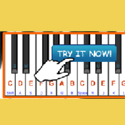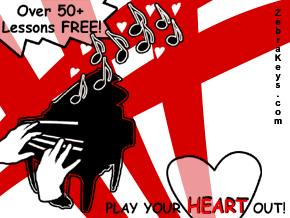Recommended
Categories
Reprinted Articles
Play Piano - There is no Substitute for Practice |
|---|
| by Ronald Worthy |
|
There is no substitute for practice. By spending a couple of hours with your instrument every day you develop a special relationship with it. You need to have a regular practice routine that contains certain constant elements (such as warm-up exercises) as well as variable elements that address your current avenue of study. And performing doesn't count as practice. Although playing gigs, performing in Church or for your personal enjoyment is an essential part of your musical development, it won't replace time in the practice room. There are times, however, when you just can't maintain a regular practice routine. All the other elements of your life crowd in and you find you have to grab a spare hour of practice wherever you can. It seems futile to embark on any long-range practice projects that will require weeks or months of steady work, because you know it won't happen. So should you give up? Must you put off the idea of improving your musicianship until you have more time (and are you sure that time will come)? Here's an alternative - I call it "target bombing." You have an hour to practice. Find something to practice that is not currently in your arsenal. It could be a lick, a scale, a set of chord voicings, a section of a tune, a transcribed solo, anything. But this is important: it must be small. Don't set a general goal (e.g., mastering the McCoy Tyner style of pentatonic scale improvisation). Instead, select a little piece of business (such as a particular pentatonic lick to be learned in 12 keys). Assume that this is the only opportunity you'll have to learn this particular item. Tomorrow you'll move on to something else. Approach the hour's practice with this attitude: "What can I do within the next hour to permanently improve my musicianship in one very small but measurable way?" More specifically, "What can I do to master this one item so that it will be self-reinforcing, so that it will immediately begin to show up in my actual performances?" Your plan is to devour this one small thing so completely that it can't slip away. If it's a lick, make it a short one and learn it in several keys. Work out the fingering. Play it over random ii-V progressions. Solo over a few tunes and work that lick in wherever you can. If it's a chord voicing, practice it in 12 keys, work it into tunes, and make sure you can make smooth transitions to and from other voicings. If you don't get it by the end of the hour, you lose it forever. But if you ingest it fully enough, then it will immediately begin to show up in your performances. It will become a small element of your style and you'll never lose it. This is target bombing. It's intense, focused, and can be tremendously effective and satisfying. Although at first it may be a method that you use because you can't find time for the more traditional, routine-oriented practice, you may find it so successful and fun that you make it your primary approach. After all, you climb a mountain with thousands of small steps. Take each step so well that you never have to take it again. I've seen this approach work wonders for many students, and I use it all the time myself. I've also seen it fail miserably for others. It requires a type of tunnel vision, a willingness to gnaw on one thing for one hour without letting other concerns intrude. You might feel as if you are playing when you should be working or that focusing on a tiny area is not productive when there are so many major areas to be covered. But once you successfully target bomb a few small items, you'll realize the needlessness of your concerns. Anyway, try this method on - see if it fits your style. Copyright 2006 RAW Productions About The AuthorRon Worthy is a Music Educator, Pianist and Songwriter. To learn even more piano "Tricks of the Trade," visit: http://www.playpianotonight.com/VC.html to get your FREE Piano Lesson Video Clip! |
Recommended Stuff
Beginner Piano:
| Learn Songs - Learn 3 Easy Songs, free Virtual Piano provided |
| Chords - Learn how to construct Major Chords, Primary Chords & more |
| Music Theory - Key Signatures, Major Scales, Intervals & more |
| Improvisation - Chord Inversions, and different Chord Patterns |
| Techniques - Pentatonic Scale, Whole Tone Scale, Arpeggio |
Free Piano Reference
Music Terms Glossary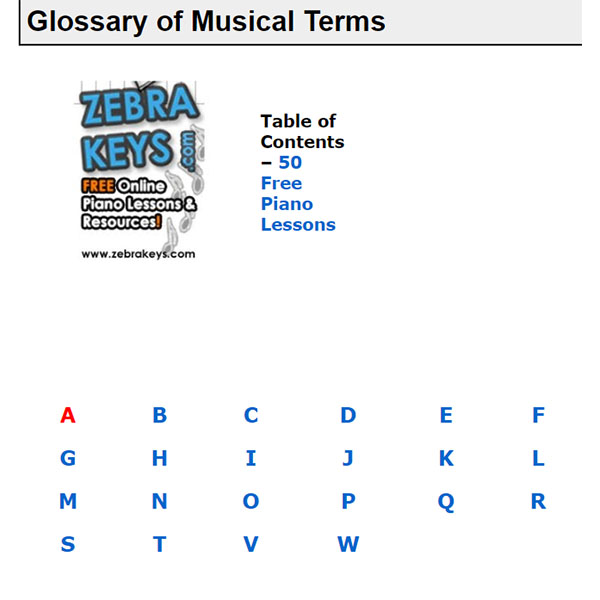 |
FIND any CHORDS using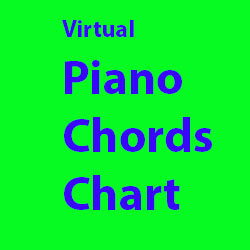 |
Music Notation Chart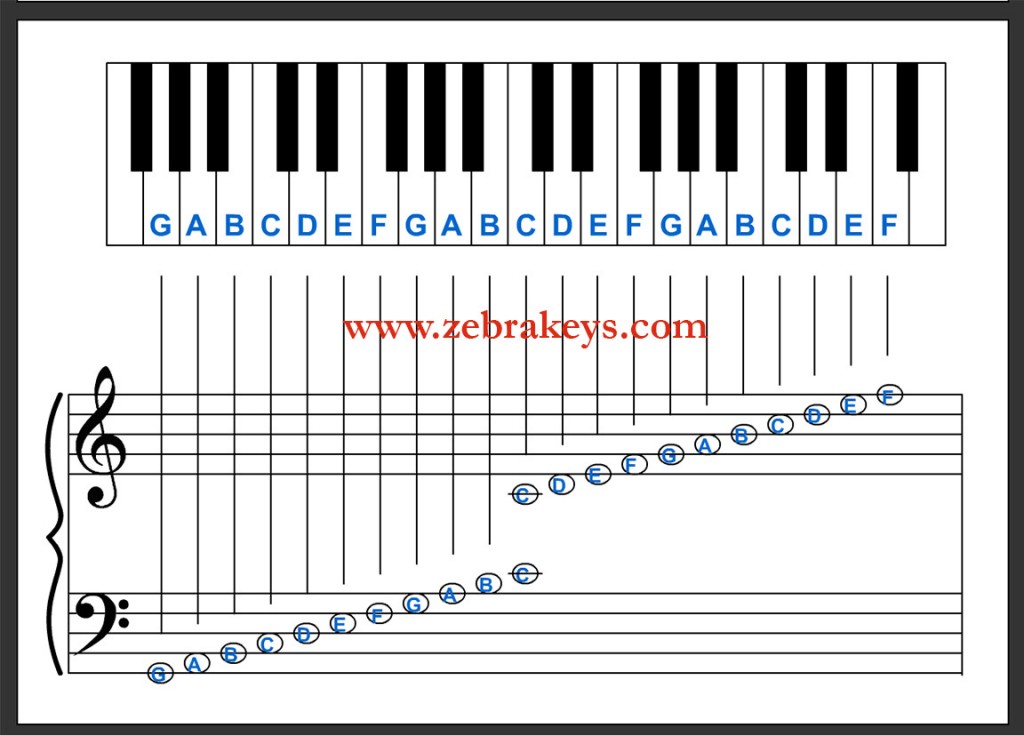 |
| TRANSLATE this content |
| Beginner Piano | | | Intermediate Piano | | | Advanced Piano |
|
List of 50 Free Lessons
Piano Basics  Lesson 1 - Patterns of Piano Keyboard Lesson 2 - Names of White Keys Lesson 3 - Names of Black Keys Lesson 4 - Grand Staff Lesson 5 - Note Durations |
Use our free Virtual Piano Keyboard in conjunction with these free lessons:
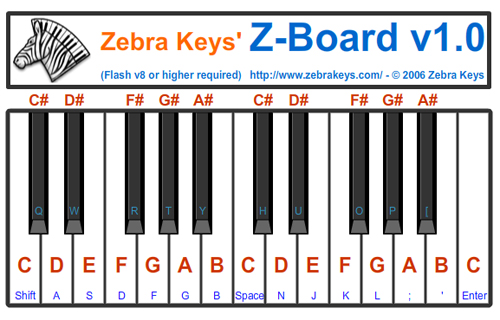 |
|
Beginner Piano Lesson 6 - Brother John Lesson 7 - London Bridge Is Falling Down Lesson 8 - Twinkle Twinkle Little Star |
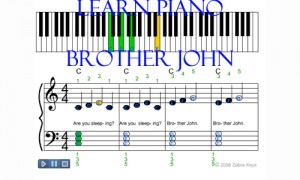 |
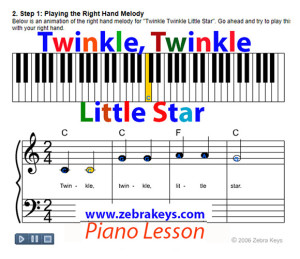 |
| Lesson 9 - Major Chord |
|
FIND any CHORDS using Free Virtual Piano Chord Chart 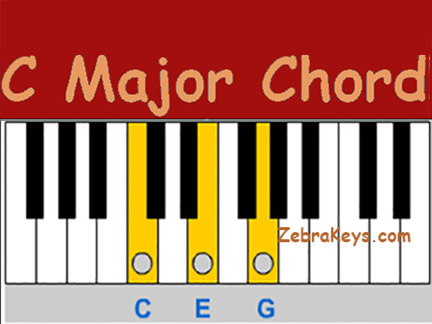 |
|
Lesson 10 - Three Primary Chords Lesson 11 - 12 Bar Blues Chord Progression |
| Lesson 12 - 12 Keys of Music |
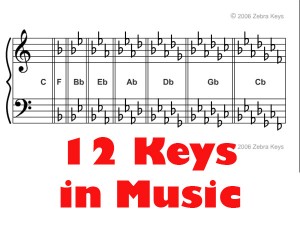 |
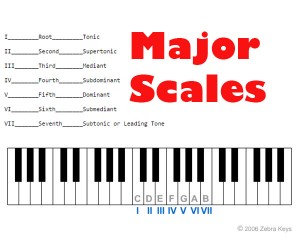 |
|
Lesson 13 - Major Scale
Lesson 14 - Musical Intervals Lesson 15 - Chords of the Major Scale Lesson 16 - The Circle of Fifths |
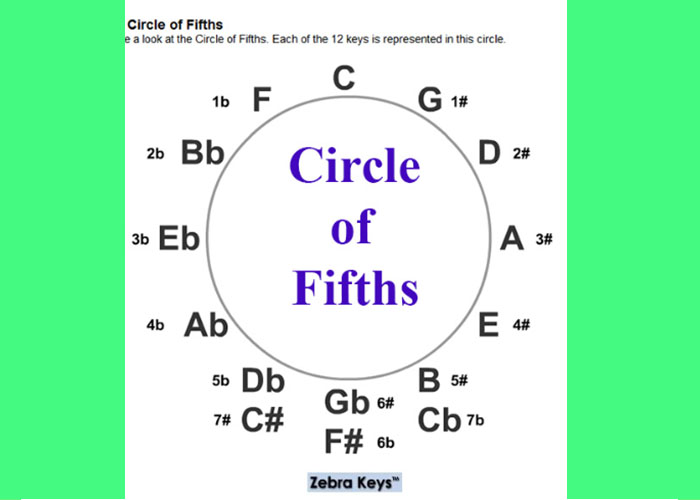 |
|
Lesson 17 - Chord Inversions Lesson 18 - Double Chord Pattern Lesson 19 - Broken Chord Pattern Lesson 20 - Arpeggio Chord Pattern Lesson 21 - Sounds of the Orient (Pentatonic Scale) Lesson 22 - Mysterious Sounds (Whole Tone Scale) Lesson 23 - Arpeggios |
|
Intermediate Piano Lesson 24 - America (My Country Tis of Thee) Lesson 25 - Silent Night Lesson 26 - God Rest Ye Merry Gentlemen |
|
Lesson 27 - Minor Chord Lesson 28 - Three Secondary Chords Lesson 29 - Dominant 7th Chord Lesson 30 - Major 7th Chord Lesson 31 - Minor 7th Chord Lesson 32 - Natural Minor Scale Lesson 33 - Chords of the Natural Minor Scale |
|
Lesson 34 - Melody as Octaves Lesson 35 - Root Chord Pattern Lesson 36 - Harmony Notes Lesson 37 - Major Chord Inversions Lesson 38 - Chord Inversion Straddles |
|
Advanced Piano Lesson 39 - The First Noel (Flash demo version) Lesson 40 - Auld Lang Syne Lesson 41 - Hark! The Herald Angels Sing |
|
Lesson 42 - Diminished Chord Lesson 43 - Augmented Chord Lesson 44 - 6th Chords Lesson 45 - Sus2 Chords Lesson 46 - Sus4 Chords Lesson 47 - Major 9th Chords Lesson 48 - Major 11th Chords Lesson 49 - Major 13th Chords Lesson 51 - Blues Scale |

Custom Search
| Access | Free | Tutorials |
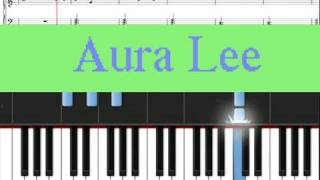 |
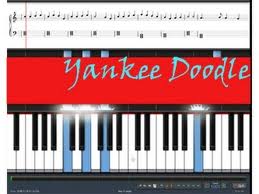 |
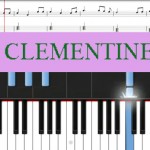 |
|
How to play Twinkle Twinkle Little Star - free tutorial with Flash demos Access free Virtual Keyboard for for Free Learn to Play Piano Songs Online - Silent Night, Auld Lang Syne, The First Noel |
|
Access 3 Easy Piano Songs for Beginners, free tutorials with Flash demos - A fun way to learn how to play piano for free.
How to play We Wish You A Merry Christmas Use Virtual Keyboard below in conjunction with all of our free lessons, and to practice songs you have learned: |
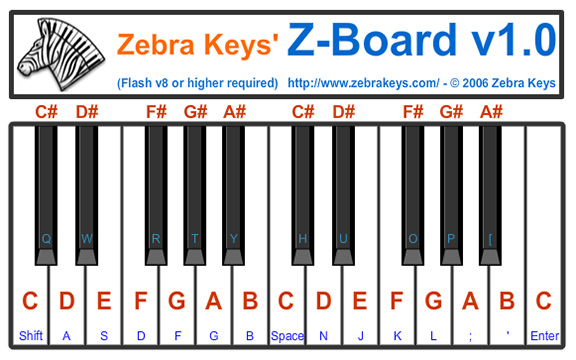 |
|
FIVE-FINGER EXERCISES Access Piano Technique Lessons |
|
CHORD INVERSIONS Access Piano Improvisation Lessons |
| Learn Language - Fun & Free Educational Games. Play now! No Installation Required |
 |
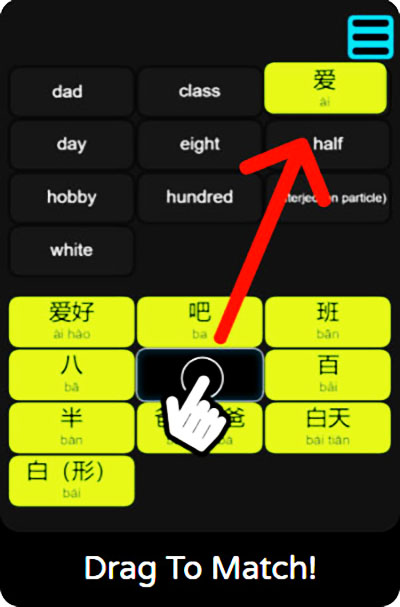 |
|
Access Music Theory Section for Beginners -
learn Intervals in music |
 |
 |
 |
|
How to play Diminished Chord in the Key of C |
|
Learn how to play Twinkle Little Star Download free sheet music here |
|
Learn Brother John |
Row Your Boat |
|
Learn Aura Lee |
Up On The Housetop |
 |



